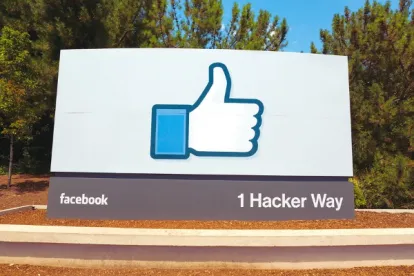In the span of fifteen days, TCPA defendants in two separate cases asked the U.S. Supreme Court to review two distinct but interwoven Ninth Circuit decisions on the constitutionality of the TCPA. Specifically, Facebook, Inc. and Charter Communications, Inc. are each asking the Court to rule that the TCPA’s prohibitions on calls made using an ATDS or an artificial or prerecorded voice contravene the First Amendment because they are “content-based” restrictions on speech and that the Ninth Circuit erred in “remedying” the constitutional violation—by severing the TCPA’s exemption for calls made to collect a government debt—rather than invalidating the entire statute. Facebook, Inc. v. Duguid, Petition for Writ of Certiorari, No. 19-511 (Oct. 17, 2019) (“Facebook Petition”); Charter Commc’ns, Inc. v. Gallion, Petition for Writ of Certiorari, No. 19-575 (Nov. 1, 2019) (“Charter Petition”). The two cases represent the most recent escalation of the growing trend in litigation challenging the TCPA’s ability to withstand First Amendment scrutiny.
I. Background
The TCPA includes an exemption for calls made “solely to collect a debt owed to or guaranteed by the United States.” See 47 U.S.C. § 227(b)(1)(A)(iii). The government debt collection exception has become the focal point of the recent efforts to challenge the constitutional viability of the statute on First Amendment grounds. See, e.g., Am. Ass’n of Political Consultants, Inc. v. FCC, 923 F.3d 159 (4th Cir. 2019) (concluding that the government debt collection exception renders the TCPA’s prohibition unconstitutional and holding that severing the provision was an appropriate remedy); Smith v. Truman Rd. Dev., LLC, No. 18-cv-00670, 2019 WL 5654352 (W.D. Mo. Oct. 31, 2019) (holding that the TCPA’s government debt collection exception is content-based, subject to strict scrutiny, and fails under that standard, but, because it is severable, the remaining statute is enforceable). The government debt collection exception is squarely at issue in both of the recently filed Supreme Court Petitions. Our previous blog post provides additional background information regarding the litigation history surrounding this section of the TCPA.
II. The Facebook Case
District Court Proceedings
In March of 2015, Noah Duguid filed a putative class action alleging that Facebook violated the TCPA because it “willfully or knowingly” sent him certain “login-notification text messages” using an ATDS in violation of 47 U.S.C. § 227(b)(1)(A). See Facebook Petition at 8. Facebook filed a motion to dismiss that raised constitutional and statutory defenses to the claims. See id. at 9; Duguid v. Facebook, Inc., No. 15-cv-985, 2017 WL 635117, at *3-5 (N.D. Cal. Feb. 16, 2017) (“Facebook Dist. Ct. Op.”). The Northern District of California granted Facebook’s motion to dismiss and held that Duguid’s allegations regarding Facebook’s use of an ATDS were insufficient because “plaintiff’s own allegations suggest direct targeting that is inconsistent with the sort of random or sequential number generation required for an ATDS.” Id. The district court did not reach Facebook’s First Amendment arguments because it ruled in Facebook’s favor on the ATDS issue. Id.
The Ninth Circuit Appeal
Duguid appealed the district court’s ATDS ruling to the Ninth Circuit and Facebook raised its First Amendment arguments as an alternate basis to affirm. See Duguid v. Facebook, Inc., 926 F.3d 1146, 1153-56 (9th Cir. 2019) (the “Facebook Ninth Cir. Op.”).
The Ninth Circuit addressed the ATDS issue first, relying on its ruling in Marks v. Crunch San Diego, LLC, 904 F.3d 1041, 1052 (9th Cir. 2018), which held that “the statutory definition of an ATDS is not limited to devices with the capacity to call numbers produced by a ‘random or sequential number generator,’ but also includes devises with the capacity to dial stored numbers automatically.” The court concluded that under Marks, the TCPA’s prohibition on calls from an ATDS encompassed the Facebook text messages at issue. Facebook Ninth Cir. Op., 926 F.3d at 1152.
Next, the Ninth Circuit addressed Facebook’s argument that the government debt collection exception is content-based and fails under First Amendment scrutiny. See Facebook Petition at 11; Facebook Ninth Cir. Op., 926 F.3d at 1152. The Ninth Circuit agreed and held that because the government debt collection exemption ‘“target[s] speech based on its communicative content,’ the exception is content-based and subject to strict scrutiny.” Id. at 1153 (citation omitted). The court concluded that the provision failed strict scrutiny because it was “insufficiently tailored the government’s interests in protecting privacy or the public fisc.” Id. at 1156. Nonetheless, the court determined that the provision was severable from the rest of the TCPA and that “excising” the provision rendered the rest of the statute content neutral. Id. at 1156-57. Facebook separately argued that the Marks decision renders the ATDS prohibition “wildly overbroad” and incompatible with the First Amendment but the court did not address this argument. See Facebook Petition at 11.
The Facebook Petition
Facebook’s Petition for a Writ of Certiorari raises two separate First Amendment arguments. First, Facebook argues that “the TCPA’s prohibition on making calls with an ATDS . . . decidedly does abridge speech.” Facebook Petition at 2. It further contends that it was denied any relief despite the fact that the “Ninth Circuit accepted [its] argument that the government-debt exception rendered the TCPA’s prohibition on calls from an ATDS unconstitutional. . . .” Id. at 11. Facebook argues that “[n]othing in ‘severability’ or First Amendment principles empowered the Ninth Circuit to rewrite the prohibition to abridge more speech by excising a government-debt exception.” Id. at 2.
Facebook’s second constitutional argument concerns the Ninth Circuit’s definition of an ATDS in Marks. Id. at 2. Facebook argues that “[t]he Ninth Circuit’s statutory interpretation [of the ATDS provision] renders the statute wildly overbroad” because it conceivably “covers every smartphone in America.” Id. Facebook contends that this “nearly limitless view of what constitutes an ATDS is wrong as a matter of both basic statutory construction and constitutional avoidance principles.” Id. at 3, 23 (quoting Lamie v. U.S. Trustee, 540 U.S. 526, 534 (2004) (“[W]hen the statute’s language is plain the sole function of the courts–at least where the disposition required by the text is not absurd–is to enforce it according to its terms.”). Facebook also notes that the Marks decision is in “acknowledged conflict with the holding of the Third Circuit and reaches a result that the D.C. Circuit labeled ‘unreasonable,’ ‘impermissible,’ and ‘untenable.’” Id. at 3, 29 (quoting ACA Int’l v. FCC, 855 F.3d 687, 697-98 (D.C. Cir. 2018) and citing Dominguez v. Yahoo, Inc., 894 F.3d 116, 121 (3d Cir. 2018)).
III. The Charter Communications Case
District Court Proceedings
Plaintiff Steve Gallion initially filed a putative class action against Charter Communications, Inc. and Spectrum Management Holding Company, LLC (collectively, “Charter”) in the Central District of California on July 6, 2017. See Gallion v. Charter Commc’ns, Inc., 287 F. Supp. 3d 920, 922 (C.D. Cal. 2018) (the “Charter Dist. Ct. Op.”). Gallion alleged that Charter violated Section 227(b)(1)(A)(iii) of the TCPA by calling his cell phone one time using an “artificial or prerecorded voice” without his consent. Charter Petition at 6. Charter answered the complaint and presented an affirmative defense arguing that the TCPA’s content-based prohibitions violate the First Amendment. Id. The Central District of California held that the TCPA’s “government debt exception facially renders the TCPA a content-based restriction on speech” and necessitated the application strict scrutiny. Charter Dist. Ct. Op., 287 F. Supp. 3d at 931. Nonetheless, the court concluded that the statute survived the strict scrutiny analysis because the statute’s abridgment of speech is narrowly tailored to the government’s interest in residential privacy. Id. The court certified for the Ninth Circuit’s review the question of “whether the TCPA, as a content-based regulation of speech, survives strict scrutiny.” Id.
The Ninth Circuit Appeal
On appeal, the Ninth Circuit considered Charter Communications in tandem with the Facebook case. Two weeks after the Ninth Circuit issued its published decision in Facebook, the court issued an unpublished opinion in Charter Communications. See Gallion v. U.S., 772 F. App’x 604 (9th Cir. July 8, 2019). In a terse opinion, the court stated that “[c]onsistent with [Facebook], we hold that the 2015 amendment to the TCPA, which excepts calls ‘made solely to collect a debt owed to or guaranteed by the United States,’ is a content-based speech regulation that fails strict scrutiny, and thus is incompatible with the First Amendment.” Id. at 605 (internal citations omitted). Following the Facebook reasoning, the Ninth Circuit severed the “unconstitutional debt-collection exception” and left the remaining sections of the TCPA intact. Id. at 606. The Ninth Circuit denied Charter’s petition for rehearing en banc. Gallion v. U.S., No. 18-55667, Dkt. 62 (9th Cir. Sept. 16, 2019).
The Charter Petition
Charter’s Petition asks the Supreme Court to address whether the TCPA’s prohibitions on calls made using an ATDS or an artificial or prerecorded voice are unconstitutional “content-based” restrictions of speech, and if so whether the Ninth Circuit erred in “remedying” the constitutional violation by severing the TCPA’s exemption for calls made to collect a government debt without invalidating the entire statute. See Charter Petition at i.
Charter argues that the Ninth Circuit erred because “instead of striking down the unconstitutional restrictions on speech, it invoked the extraordinary ‘remedy’ of severing the government-debt exception from the statute and thus expanded the statute’s prohibitions on speech.” Charter Petition at 1 (emphasis in the original). Charter contends that the Ninth Circuit’s opinion “squarely contradicts” Supreme Court precedent, “which calls for invalidating the restriction when a content-based regulation of speech is held to violate the First Amendment. See id. at 2 (emphasis in original) (citing Reed v. Town of Gilbert, 135 S. Ct. 2218, 2232 (2015)). Charter also asserts that the Ninth Circuit’s decision creates a “circuit conflict” with the Third Circuit and “other courts of appeals” that have held that “a court [cannot] solve a First Amendment violation by abridging more speech.” See id. at 2, 9 (citing Rappa v. New Castle Cnty., 18 F.3d 1043, 1072-73 (3d Cir. 1994)).
Charter’s Petition asks the Supreme Court to consider its case in tandem with the Facebook Petition for two reasons. Id. at 22. First, Charter notes that the Facebook Petition, unlike its own Petition, “involves a threshold question of statutory interpretation” regarding “an independent challenge to the Ninth Circuit’s construction of the ATDS term.” Id. Charter contends that “if the Court were to decide [this issue] in Facebook’s favor, it likely would have no occasion to address the broader issue of the TCPA’s constitutionality.” Id. Charter argues that the Supreme Court should review its case and Facebook together “[in] order to ensure its ability to address the constitutional issue (including with respect to calls, like those alleged here, that involve a prerecorded voice message but not an ATDS).” Id.
Second, Charter contends that its constitutional challenge is broader than Facebook’s, which it characterizes as relying only “on the government-backed debt collection exception.” Id. Charter raises constitutional claims “on the TCPA’s other content-based exceptions as well, including the exception for calls made by governmental entities and the numerous content-based exceptions created by the FCC.” Id. Charter asserts that granting its Petition in tandem with the Facebook Petition will “permit [the] Court to consider all of the statute’s various content-based exceptions—which is important because the number of exceptions may be a material consideration in deciding whether ‘severing’ exceptions is a valid or practical remedy.” Id. at 22-23 (emphasis in original).
We will provide continuing coverage if the Supreme Court grants either of the Petitions.






 />i
/>i
